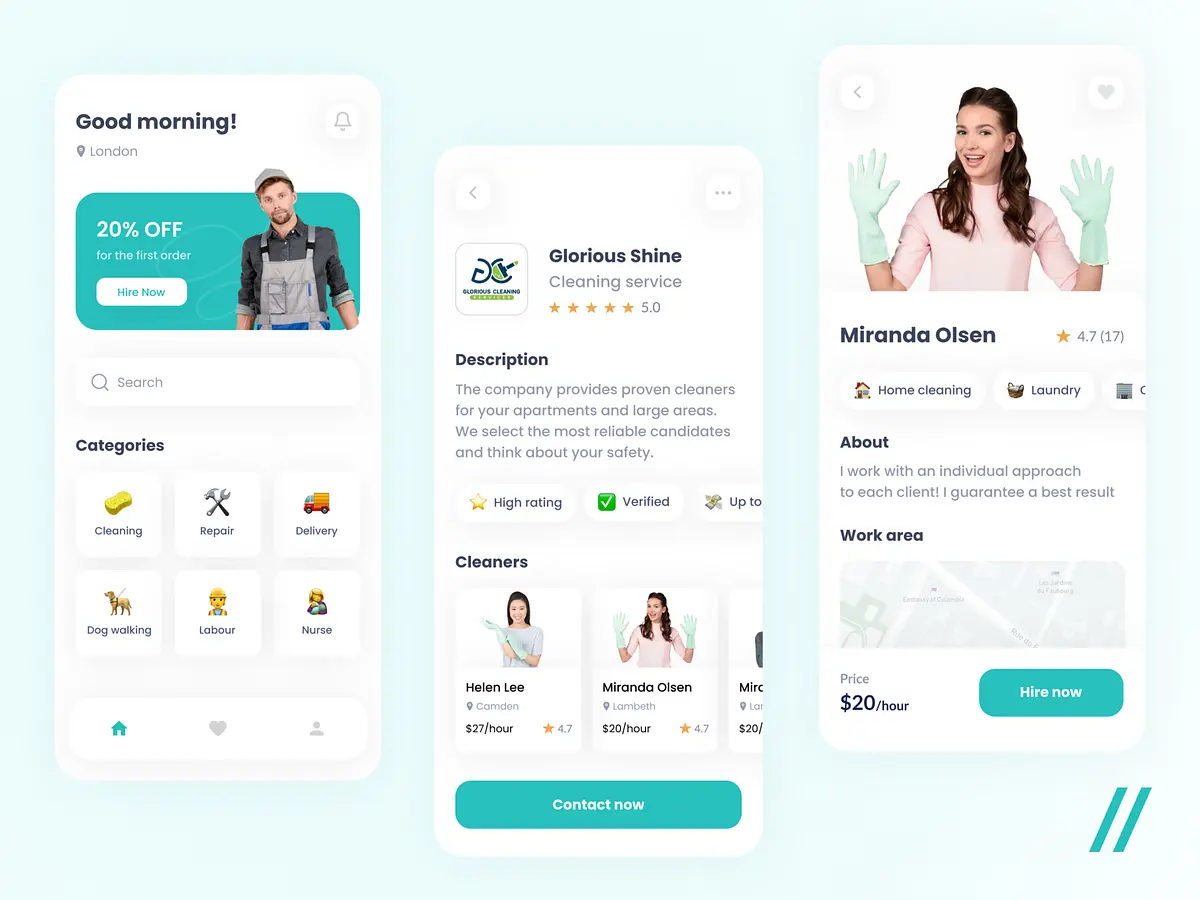Web Development vs. App Development: Which is Better?


In this 4.0 industry era, going digitalized is an uprising trend that businesses should wisely adapt to avoid being left out. Regarding app development, there are two options for business owners to choose from: Web development vs. app development. Let’s find out the main differences between those terms with TECHVIFY Software.
Web development, or website development, refers to the tasks associated with building and maintaining a website via the intranet or the internet. This could apply to anything from creating a single plain-text webpage to developing a complex web application or social network. Web development is responsible for ensuring the website looks great, works fast, and performs well with a seamless user experience. It is generally divided into the front end (the user-facing side) and the back end (the server side).

Web development includes all the actions, updates, and operations required to build, maintain and manage a website to ensure its performance, user experience, and speed. The web development process includes web design, web content development, client-side/server-side scripting, and network security configuration, among other tasks in a broader sense. In addition, it might also include all those strategic actions needed to ensure search engine optimization, so-called SEO.
Web developers, or ‘devs,’ do this by using a variety of coding languages. The languages they use depend on the types of tasks they perform and the platforms they work on.
There are some characteristics of a good website that web developers should follow:
Mobile app development is the process of creating software applications that run on mobile device software, most commonly for Android and iOS. Typically, mobile app development allows mobile applications to utilize a network connection to work with remote computing resources. The software can be preinstalled on the device, downloaded from a mobile app store, or accessed through a mobile web browser.
The mobile app development process involves creating installable software bundles like code, binaries, assets, etc.; implementing backend services such as data access with an API; and testing the application on target devices. The programming and markup languages used for this kind of software development include Java, Swift, C#, and HTML5.

Mobile app development is getting more and more popular nowadays because it is very helpful in managing information, conducting transactions, storing data, etc. From retail, telecommunications, and e-commerce to insurance, healthcare, and government, every business can make use of a mobile app to simplify the managing process.
Consumer-centric features:
Business-centric features:
In general, web apps condense website content to improve its functionality. A web app loads in browsers like Chrome, Safari, or Firefox and adapt to whichever device you’re viewing them on. It doesn’t need to be downloaded from app stores like native mobile apps, so it doesn’t take up storage on the user’s device.
Due to their responsive nature, they look and function a lot like mobile apps. However, web apps are a more cost-effective way to promote your product to a wide range of users thanks to their user-friendly content.
Learn more about mobile app platforms:
Top 10 mobile app development platforms to build your mobile app.
| WEB APP DEVELOPMENT | MOBILE APP DEVELOPMENT | |
| PROS | – Do not need to be downloaded or installed.
– Quicker and easier to build than mobile apps. – Do not require app store approval, so it can be launched quickly. – Relatively easy to maintain because they have a common codebase regardless of the mobile platform. – Can be built for all platforms as long as they can run in an appropriate web browser. – Less expensive upfront. – Can be released at any time and in any format. – Always available to the newest version without going through any update installation. |
– Don’t need a web browser like web apps.
– Greater functionality as they can access a device’s internal APIs and hardware. – Only one codebase is needed for hybrid apps. – Faster than web apps. – Can work offline. – Safe and secure — native apps must first be approved by the app store – Easier to build due to the availability of developer tools, interface elements, and SDKs. |
| CONS | – Do not work offline. A browser is required to run a web app. More effort complicates the user experience.
– Users interact with different web browsers, so the usage patterns and performance metrics used to create a product roadmap are more difficult to collect. – Web apps are slower, less interactive, and much less responsive than native apps. – There are fewer branding opportunities with web apps. – May not be as discoverable as mobile apps as they are not listed in a specific database, such as the app store – Quality and security are not always guaranteed — web apps don’t need to be approved by the app store. |
– Much slower than native apps.
– Dependent on a third-party platform to deploy the app’s wrapper. – More expensive to build than web apps. – Compatibility with different platforms (i.e., iOS and Android) usually means designing and building the app from scratch. – Expensive to maintain and update It may prove difficult to get a native app approved by the app store. |
In conclusion, web and mobile app development have advantages and disadvantages that we should consider when digitalizing. Each one has some pros and cons that could be suitable for different kinds and scales of businesses.

If you have some ideas to upgrade your business that requires an app, don’t hesitate to contact us. TECHVIFY can give you advice and offer you the best app development services.


Table of ContentsI. What is web development?II. How to perform adequate web development?III. What is mobile app development?IV. Key features for an effective mobile app development processV. Web Development vs. App Development: The key differencesVI. Web Development vs. App Development: Pros and Cons Technological advancements are paving new paths for companies across different sectors, and the logistics industry is no exception. According to a survey by Gartner, 87% of supply chain professionals plan to invest in enhancing the resilience of their platforms. Logistics encompasses a broad and complex array of processes that demand the utmost precision and continuous optimization. Companies…
26 July, 2024

Table of ContentsI. What is web development?II. How to perform adequate web development?III. What is mobile app development?IV. Key features for an effective mobile app development processV. Web Development vs. App Development: The key differencesVI. Web Development vs. App Development: Pros and Cons The technology sector is advancing at an unprecedented pace, and the HR landscape is evolving right alongside it. To attract top talent, HR professionals and organizations need to stay ahead of emerging technology hiring trends. This year, we are witnessing significant shifts in hiring practices that will redefine our understanding of the future workforce. According to a…
25 July, 2024

Table of ContentsI. What is web development?II. How to perform adequate web development?III. What is mobile app development?IV. Key features for an effective mobile app development processV. Web Development vs. App Development: The key differencesVI. Web Development vs. App Development: Pros and Cons Customized software plays a major role in managing various tasks within the telecom industry. It is essential for allocating numbers to subscribers and managing networks through optimized and AI-enabled routing protocols. Additionally, it aids in detecting fraud with intelligent telecom software development solutions and maintaining detailed subscriber profiles, including comprehensive call recording reports. I. A Quick Look…
24 July, 2024


Thank you for your interest in TECHVIFY Software.
Speed-up your projects with high skilled software engineers and developers.
By clicking the Submit button, I confirm that I have read and agree to our Privacy Policy